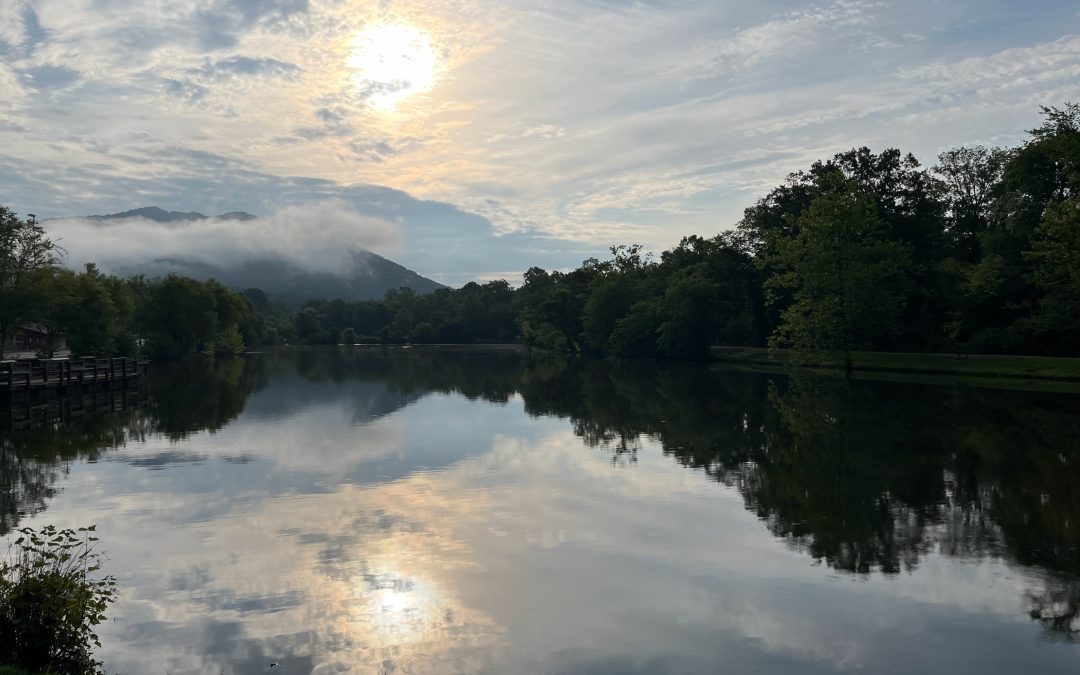Though I was raised in the progressive, justice-focused Lutheran Christianity of my parents, over time I have come to identify as humanist or spiritually independent because my personal sense of the spiritual arises from many diverse sources within and outside of the Christianity of my childhood. For example, since I was a child, I have been enchanted by the natural world, finding magic, mystery, and wonder in the beauty of forests or the transformation of a flower into an apple. And in divinity school, I began conceiving of the Divine as something akin to the Buddhist concept of Indra’s Net – where the jewel – the being at every eye in the net – reflects all others infinitely. I came to think about the Holy as this web of interconnectedness, reflecting the space between you and me and all the intertwined relationships in every ecosystem (big or small) across the universe.
Until a year ago, I didn’t know anything about religious naturalism as a worldview or an organization. But after almost a decade of work as a hospital chaplain, I was delighted and fascinated when I recently started hearing and learning about religious naturalism as a worldview and the RNA as a chaplain endorsing body. Reading about religious naturalism brought me a sense of spiritual alignment that I have not felt when trying to fit myself into other religious organizations and worldviews. Religious naturalism aligns with my awe and wonder in nature, from the small microorganisms to the cosmic movings of galaxies. It makes sense of my foundational beliefs in mystery, curiosity, and interconnectedness, all of which then impact how I try to live my life grounded in these values and in a reverence for all life.
I especially find comfort in religious naturalism naming the shared story of the universe,via the big bang. I love the commonality that this shared central story can bring. And I personally feel very spiritually grounded in this extreme spiritual long view of the universe, that is, in the understanding that human existence is but a small moment in the vastness and mystery of the cosmos. We are not the center of the universe, literally or figuratively, and I believe the universe will continue on in beautiful ways someday when humans are gone. Many find this view of the potentially-fleeting nature of human existence to be depressing or fatalistic, but I find it comforting and inspiring, because we get to be part of the beautiful dance of life and death and change that is the universe. We get to consciously live in the sacred interconnected space in which our lives affect and reflect all that is around us.
In my work as a healthcare chaplain (and especially in my current work in palliative care), this long-view story of the universe that religious naturalism holds is a source of spiritual grounding and sustainability for me. Looking to the natural world and the vastness of the cosmos for perspective on human joy, suffering, life, and death helps me feel grounded in something bigger in the midst of my chaplaincy work. In addition to this sense of spiritual groundedness that gives me energy, perspective, and comfort in my day to day work as a chaplain, religious naturalism is also helping me consider ways of looking towards nature to learn about how to live well with and for others. Engaging the concepts of religious naturalism encourages me to consider what I can learn from plants and creatures about how to live and work in ways that honor natural lifespans, that value interdependence and collaboration, and that use resources sustainably. In many ways the religious naturalist worldview felt familiar to me when I encountered it and has been a spiritual grounding for my chaplaincy work for many years, and I have been excited to engage this worldview now in ways that are deepening my thinking about the world and how I live, think, and act both in my work as a chaplain and as a human being.
Cynthia Driedger-Bauer, MDiv, BCC

